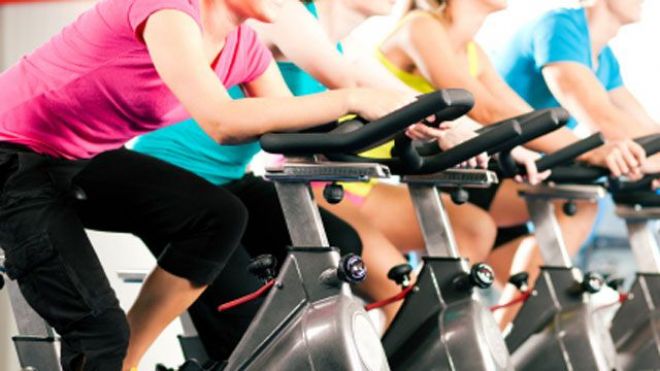
We only have the best intentions when we work out, but sometimes it can be hard to know what exactly is best for our fitness. Luckily the American Council on Exercise debunked eight common workout myths for us so the next time you hit the pavement (or treadmill) you can start to see results. Related: 12 Reasons To Lose Weight Now Myth #1: Stretching before exercise reduces the risk of injury. False: The scientific literature of the past decade fails to support stretching before exercise as a successful strategy for injury prevention. However, research does support stretching at other times, including post-exercise, to reduce injury risk. Myth #2: Walking a mile burns as many calories as running a mile. In our dreams: While walking is a great physical activity, it does not require as much energy as running. Research has shown that running has a 40 percent greater energy cost compared to walking . That means you burn more calories when you run. Related: 15 Delicious Diet Breakfast Ideas Myth #3: Lactic acid causes acidosis and muscle fatigue during exercise.  False: The old myth linking lactate or lactic acid to fatigue is the result of a scientific misinterpretation that has prevailed through the years.  Lactate does not cause metabolic acidosis. Furthermore, it is useful in the performance of exercise at high intensities. Myth #4: Lower-intensity exercise puts you in the fat-burning zone, so it’s preferable to higher-intensity exercise.   Wrong: The “fat burning zone” at low intensities of exercise doesn’t even exist. To burn maximum calories in support of ongoing weight loss, progress to a moderate-intensity/higher-volume exercise program and include interval training. Related: Low-Calorie Desserts to Try Right Now Myth #5: Morning workouts increase metabolism better than workouts performed later in the day. Wishful thinking: The decision to exercise in the morning should be driven by personal preference rather than any false hopes that greater weight loss will be achieved by exercising before breakfast. Myth #6: Muscle weighs more than fat. Not true: Muscle does not weigh more than fat. A pound of muscle weighs the same as a pound of fat. The difference is their density. As we lose fat and gain muscle, weight may change very little, while body volume decreases as we become leaner. Related: Cheap, Healthy Meals Your Family Will Love Myth #7: Women who want to avoid looking bulky should avoid resistance training. False: Resistance training does not cause women to get bulky. In fact, it is virtually impossible for women to get as big (i.e., bulky) as men due to physiological differences, such as lower levels of testosterone. Myth #8: Spot reduction really works, especially if you want six-pack abs. In our dreams: Research shows that if a vigorous, high-volume, core-training program is performed, fat will be reduced in the abdominal area, but not selectively. A lean midsection requires a program of core, resistance and aerobic exercise—not just a focus on the abs.source : http://www.foxnews.com/health/2013/05/16/are-working-out-wrong-way-8-common-fitness-myths-debunked/
